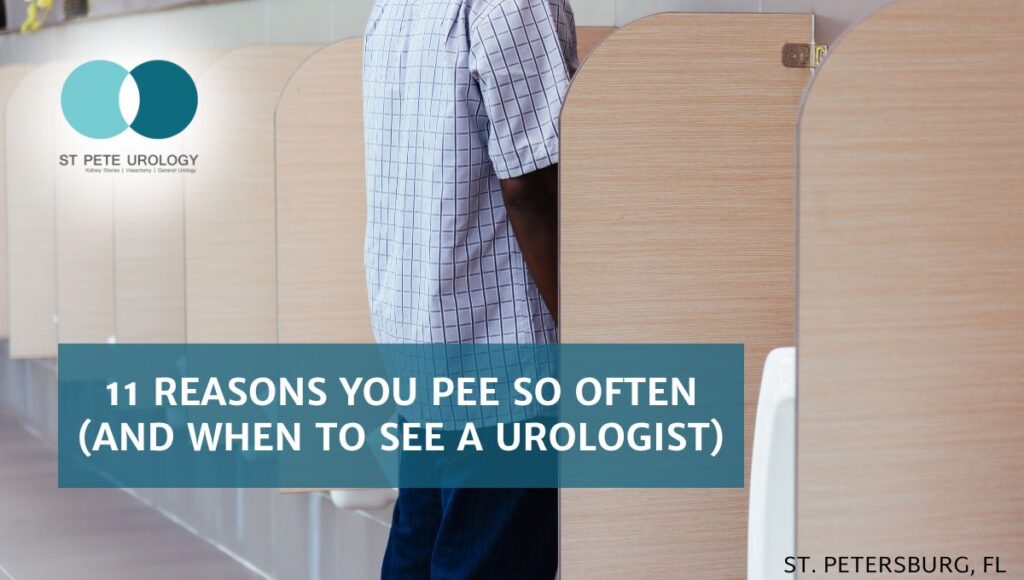Key Takeaways:
- Prostate enlargement, or BPH, is a common part of the aging process for men, but it is often ignored.
- Symptoms of an enlarged prostate can range from increased urgency to urinate, difficulty starting a stream, to interrupted sleep, urinary tract infections, and even kidney damage.
- Healthy lifestyle choices, regular check-ups, and open conversations with healthcare providers are key to managing prostate enlargement effectively.

As a middle-aged man, you’re probably no stranger to the odd health problem here and there. Yet, one issue often sidestepped in conversation, and subsequently ignored, is prostate enlargement. This condition, clinically known as benign prostatic hyperplasia (BPH), is a typical part of the aging process for men. However, its importance cannot be understated; its silence is its most dangerous attribute.
Understanding Prostate Enlargement
Signs and Symptoms
The symptoms of an enlarged prostate can be gentle whispers at first; an increased urgency to urinate, difficulty starting a stream or feeling that the bladder isn’t entirely empty. As the condition progresses, these whispers can crescendo into a drumbeat, wreaking havoc on the wellbeing and daily life of those affected, causing interrupted sleep, urinary tract infections, and even kidney damage.
Diagnosis and Treatment Options
Diagnosis can be as simple as a digital rectal exam, where a Urologist can feel the size of the prostate, or a prostate-specific antigen (PSA) blood test. Treatment options are myriad and are chosen based on the severity and impact of the symptoms. Medications can be useful for reducing the size of the prostate and the accompanying symptoms. Minimally invasive procedures and surgeries are available for more severe cases.
Potential Complications
An enlarged prostate is not synonymous with prostate cancer, nor does it increase the odds of developing it. But the symptoms are certainly akin and should not be ignored. Sexual health, too, can be affected, with erectile dysfunction and reduced libido commonly reported in men with prostate enlargement.
Lifestyle Modifications for Prevention and Management
Adopting a healthy lifestyle can help both prevent and manage prostate enlargement. Regular exercise, a balanced diet, maintaining a healthy weight, and avoiding excessive alcohol and caffeine can go a long way toward reducing the risk and the severity of the condition. Managing symptoms can be as straightforward as scheduling regular bathroom visits and avoiding drinking fluids before bedtime.
Breaking the Silence: Encouraging Men to Seek Help
You don’t have to bear this burden in silence. There is a disquieting stigma surrounding prostate health, one that refrains men from discussing it openly. Regular check-ups and open conversations with healthcare providers go a long way in managing this condition effectively.
St Pete Urology, based in St. Petersburg, FL, offers comprehensive care for men suffering from prostate enlargement. With a team of board-certified urologists, cutting-edge diagnostic equipment, and a patient-centric approach, they are committed to breaking the silence surrounding this issue. Their dedicated physicians offer individualized treatment plans, from medical management to minimally invasive procedures and surgical interventions, ensuring optimum urinary health.
In conclusion, while prostate enlargement is a common part of aging, it should never be ignored. Remember, silence isn’t golden when it comes to your health. Untreated, unnoticed, it can have severe implications. So, take heed, and take action. St Pete Urology is ready to stand by you, help you reclaim your quality of life, and alleviate the silent issue of an enlarged prostate. You owe it to yourself. Your wellbeing deserves a voice.
References:
- St Pete Urology. (2013, March 11). What is Prostate Enlargement? St Pete Urology. https://stpeteurology.com/what-is-prostate-enlargement/
- and, D. (2023, July 31). Prostate Enlargement (Benign Prostatic Hyperplasia). National Institute of Diabetes and Digestive and Kidney Diseases; NIDDK – National Institute of Diabetes and Digestive and Kidney Diseases. https://www.niddk.nih.gov/health-information/urologic-diseases/prostate-problems/prostate-enlargement-benign-prostatic-hyperplasia
- NHS Choices. (2023). Overview – Benign prostate enlargement. https://www.nhs.uk/conditions/prostate-enlargement/
- Prostate-Specific Antigen (PSA) Test. (2022, March 11). National Cancer Institute; Cancer.gov. https://www.cancer.gov/types/prostate/psa-fact-sheet





